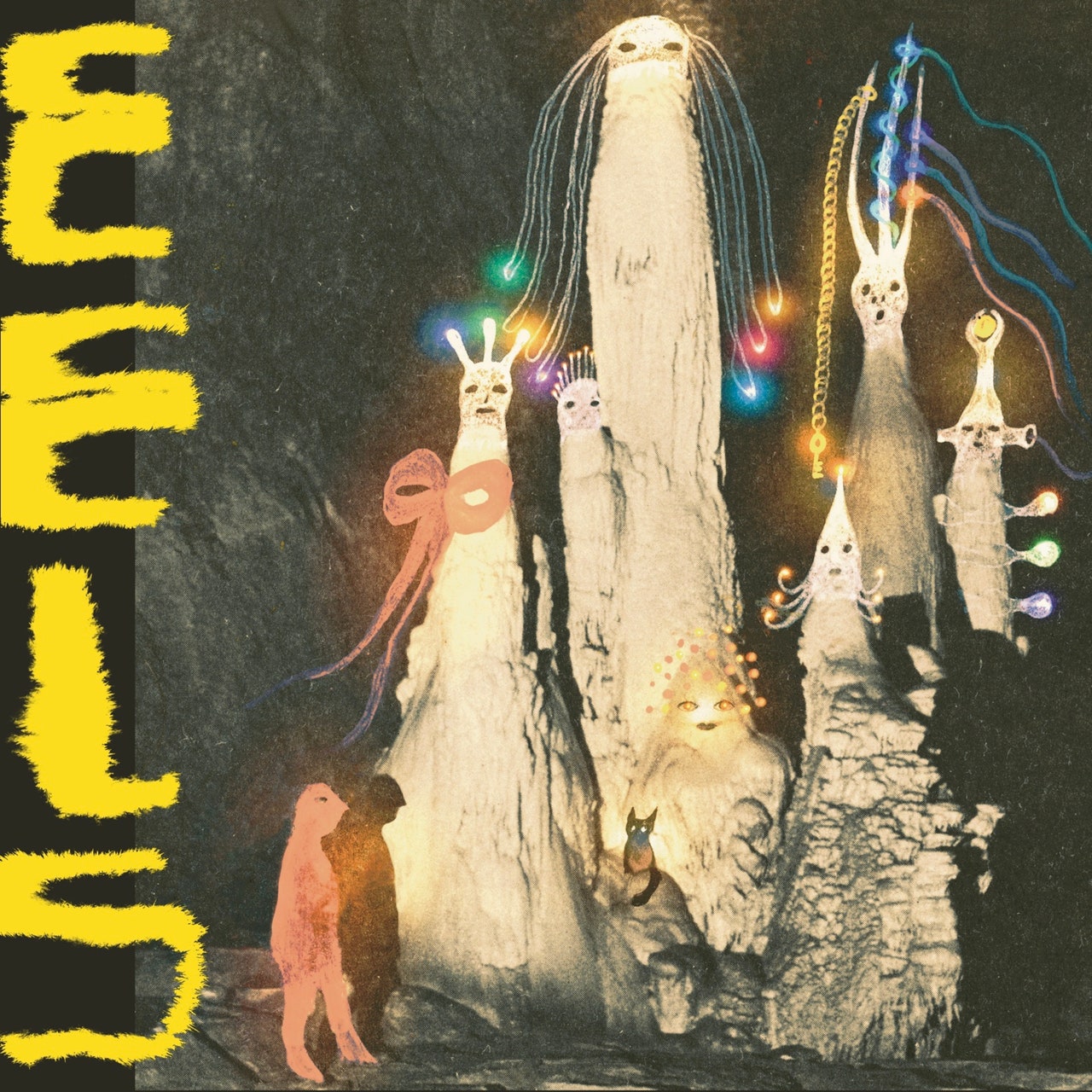Being Dead begin their second album, EELS, with “Godzilla Rises,” a love song to Godzilla. This track, like much of the Austin duo’s topsy-turvy take on rock’n’roll, is absurd, humorous, and touching. The band practically swoons for the King of the Monsters, recasting the protuberances on the creature’s spine as “handles” for holding, a statement that would seem silly if it weren’t delivered with so much longing. The names of Being Dead’s two members, Falcon Bitch and Shmoofy (formerly Gumball) are an apt sign of their abject goofiness. Yet no matter how often Being Dead aim for the funny bones, their phenomenally fun music strikes the heart.
EELS is relentless, hooky, and thematically looser than the band’s full-length debut, 2023’s When Horses Would Run, which reveled in the mythos of the American West. This is music of fine details and huge sentiments, in which a three-minute ditty called “Blanket of My Bone” feels like being emotionally leveled by your first real crush. Being Dead strike a delicate balance of mostly indelicate reference points: egg punk, cowboy kitsch, surf rock. Both band members sing, and either can take the low or high parts on these scrappy but precise arrangements—their voices call and respond, assert individuality, and come together in unison. Their interplay is self-consciously, nostalgically gendered: “I’m not Prince Charming in Rapunzel’s world,” Shmoofy declares on strangely moving highlight “Dragons II,” and later quips: “There’s no perch for your hair/And if there was, I’d just be pulling.” The album’s friction evokes a bevy of rock acts who harnessed male-female vocal tension: early ’90s indie underdogs Unrest, who counterbalanced scuzzy distortion and honeyed harmonies; or L.A. punk legends X, with their skin-tight rhythm section and the barreling back-and-forth of John Doe and Exene Cervenka; or the nanosecond when Pixies became a heartland pop act on “Here Comes Your Man.” Being Dead blow up their influences’ singing dynamics to fill 40 minutes, treating dueling vocals as a lead instrument in its own right.
The band may have toned down the western pastiche since When Horses Would Run, but the regional fascination remains. “Country boys and country girls/Dancing under the Lonestar stars,” they croon on “Big Bovine,” and again on “Ballerina,” a potent, almost jingoistic image complicated by the ambiguity of oxymoron. Being Dead’s perspective smacks of Richard Prince’s iconic appropriated images of the Marlboro Man in the way the band reframes the raw material of Americana slightly yet powerfully, turning moments of would-be grace into satire, while imbuing tiny details with the weight of a big desert sky—or a lovesick teenager. EELS explores an ironic, campy sense of innocence, presenting young, unsure characters on the cusp of realizing the difficulties of adulthood. The narrator of “Problems” channels the wide-eyed, emotionally unschooled Talking Heads from their early CBGB years: “How can I fix the problem when it is with myself?” Throughout, Being Dead pack in tales of fruitless 9-to-5s, post-party sadness, and navigating feelings during a hookup, relating such ostensibly realistic stories with a wink that adds a welcome edge to their fervent performances. They have irresistible charm and a Pavement-level knack for speaking out of both sides of the mouth.
